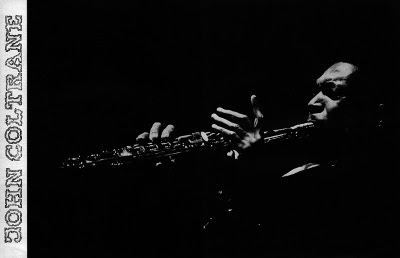 |
| Jazz Magazine Poster 1962 |
So says the French Jazz Magazine from January 1962 in an eight page Coltrane special, including a two page poster. He also got the front page and a full page ad placed for Africa/Brass.
The editorial is spread across three writers, the first appears to be an interview after a French performance. In this section Coltrane describes, for example, his difficulties in finding suitable reeds. They take a month to be perfect then only operate for a couple of days in peak condition. It also describes his introspective personality, for example him not wanting to eat in a restaurant, preferring to buy two apples and eat alone in his hotel room.
The full article has been "roughly" translated and will feature in further blogs once refined.

Comments
Post a Comment